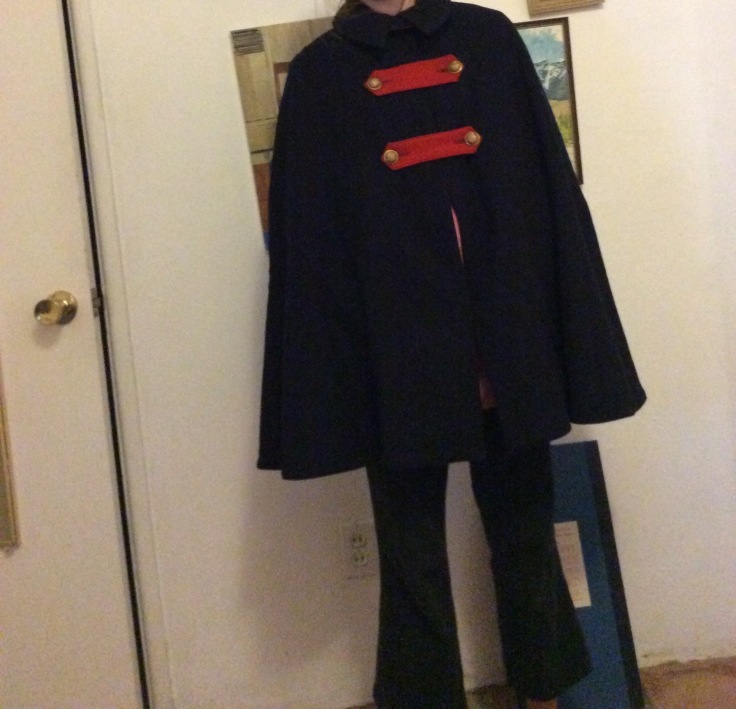 Weeks into the process, we open an ancient trunk bound by leather straps. Dust motes float into the air in the beam of light through the storage room window. The smell of camphor – I know it is camphor form the empty wrapper that falls to the bottom when the trunk is empty – rises up. The trunk appears to be full of blankets. I lift out a black velvet quilt, draped heavy as a child’s body, perfectly preserved, tweed blankets stitched neatly at the sides, a green army blanket that appears to be in the early stages of decomposition. Then I find something more: a uniform. I run to get my Dad.
Weeks into the process, we open an ancient trunk bound by leather straps. Dust motes float into the air in the beam of light through the storage room window. The smell of camphor – I know it is camphor form the empty wrapper that falls to the bottom when the trunk is empty – rises up. The trunk appears to be full of blankets. I lift out a black velvet quilt, draped heavy as a child’s body, perfectly preserved, tweed blankets stitched neatly at the sides, a green army blanket that appears to be in the early stages of decomposition. Then I find something more: a uniform. I run to get my Dad.
“How about that!” he says. “It’s my dress blues!”
We find a double breasted blue wool jacket with officer’s stripes, standard issue navy pants and sailor shirt, a light grey dress jacket. Under these we find strange heavy canvas pants with elasticized cuffs, a thin maroon wool sweater with leather elbows, pockets and a patch on the shoulder – “My Dad’s hunting clothes,” – and a mink fur stole with an exquisitely hand-embroidered tag inside “made exclusively for Florence Lutz.” “Grandmother Bounce’s coat,” Dad explains. I put it on, loop my arms through satin loops like a cape, and strut around the storage area, posing near boxes. “Elegant!”I find my grandmother’s nursing cape, pictured above, from her pre-WWI nursing days, still in perfectly good shape.
And then it strikes me that this is what people talk about when they talk about privilege: material privilege generations old. Privilege is physical, tangible. It is stuff — books, dolls, furniture, clothes — generations old.
Leave a comment